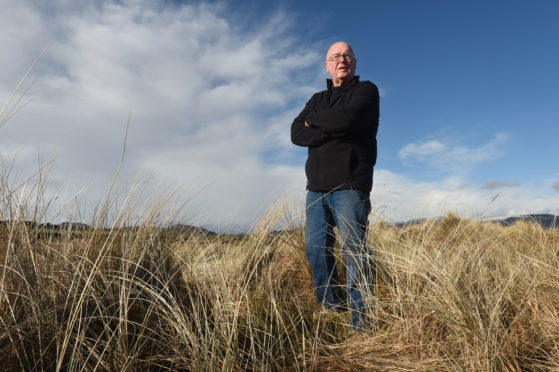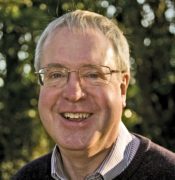When, towards the end of last month, Scottish Government ministers ruled against a planned golf course on Coul Links in East Sutherland, local councillor Jim McGillivray reacted with understandable anger to a decision that, from the perspective of the project’s many locally-resident backers, has deprived their area of an urgently needed injection of economic activity.
Days later, Gail Ross, Sutherland’s representative in the Scottish Parliament, made known that she won’t seek re-election when her current term ends next year.
Although Mrs Ross had supported the Coul Links proposal, its having been vetoed was not what led to her deciding to quit her parliamentary role. This decision, Mrs Ross said, stemmed from its being impossible, or so she’d found, to combine family life with prolonged absences from her north home – whether in Edinburgh or in one or other of the many communities, scattered across a substantial slice of Highland Scotland, she needs to keep in touch with.
She had raised with the authorities at Holyrood, Mrs Ross revealed, the possibility of her participating in at least some parliamentary or committee proceedings from a distance – by means of the tele-conferencing and other communications technologies widely used today in business, education and plenty more walks of life.
This, it seems, has been ruled out. And in Gail Ross’s consequent frustrations it’s possible to detect some overlap with what’s caused Councillor Jim McGillivray to demand that the Scottish Government and all the other organisations involved in the overturning of the Coul Links proposal come up with some alternative means of boosting East Sutherland’s prospects.
Maybe people are right to say that the safeguarding of what’s presently to be found at Coul Links – in the way of sand dunes and wetlands – matters more than the jobs and incomes a golf course might bring. Maybe people are equally right to say that MSPs have to be at Holyrood in person in order to engage in parliamentary debates, committee meetings and votes.
But if you’re a councillor looking to stop the exodus of job-seeking young folk from your community, or if you’re a Highland MSP looking to find more family-friendly and more up-to-date ways of doing your job, it must jar more than a little to be told, in effect, that your views don’t matter as much as those of folk who have no day-to-day involvement with your locality.
In Sutherland there’s nothing new in this. That so much of this huge district is so empty, so bereft of people, is owed ultimately to the fact that, 200 years ago, the area’s mostly absentee owners and their agents decided that the bulk of Sutherland should be turned over to large-scale sheep farming.
What affected populations thought about this was neither here nor there. Patrick Sellar, who turned thousands of folk out of their homes on the orders of his landowning employers, called Sutherland people ‘aborigines’. They deserved no more consideration, he believed, than those other Aborigines who, at much the same time in Australia, were also being ejected from their ancestral lands to make way – as in Sutherland – for sheep.
We’ve moved on, we tell ourselves, from thinking of the sort that led to hundreds of Sutherland communities being reduced to collections of slowly crumbling ruins. But have we really?
Local opinion in early nineteenth-century Sutherland was opposed to clearances. But clearances happened anyway. Does local opinion in early twenty-first-century Sutherland count for that much more? Jim MacGillivray, for one, contends with some force that it doesn’t.
Whether or not Coul Links should become a golf course. Whether or not there should be a spaceport on Sutherland’s north coast. Whether or not much of the area that Patrick Sellar depopulated should be scheduled as ‘wild land’ where homes are never again to be built. How Sutherland folk feel about such things – for or against – is in no way decisive. What happens, or doesn’t happen, in Sutherland is mostly determined, today as in the past, by people who don’t live there.
Gail Ross, as it happens, is trying hard to modify that position. The Remote Rural Communities Bill she’s drawn up and hopes to have the Scottish Parliament pass into law would make it obligatory for policy-makers of all kinds to give a higher priority to the needs of the localities that make up much of her Caithness, Sutherland and Ross constituency. Mrs Ross’s Bill wouldn’t overturn the decision-making processes that led to the Coul Links outcome. But what it would do is ensure that government and official bodies have to take at least a little more cognisance of the existential threats now faced by communities where services are scarce and expensive, where career prospects are often bleak and where, in consequence, young folk are few and getting always fewer.
Lots of Gail Ross’s parliamentary colleagues reacted to her decision to stand down in advance of next year’s Scottish election by warmly praising her contribution to Holyrood’s proceedings. It would be good if they’d now show some solidarity with her and with her constituents by getting behind her Remote Rural Communities Bill.
Jim Hunter is a historian, award-winning author and Emeritus Professor of History at the University of the Highlands and Islands











